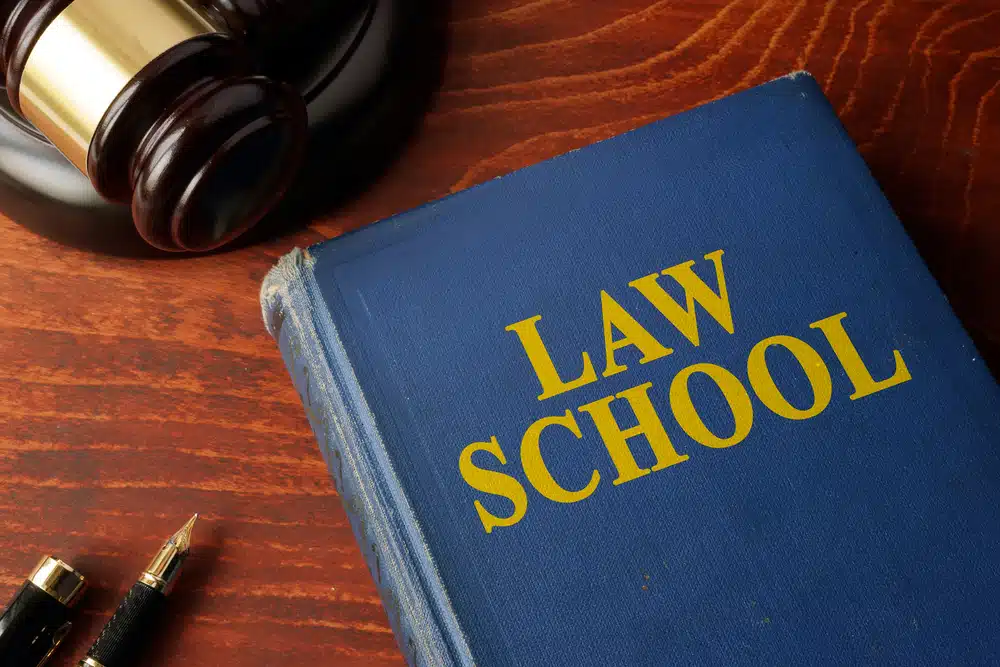Harvard Law School Acceptance Rate
The Harvard Law School acceptance rate has long intrigued aspiring lawyers worldwide. If you’ve dreamed of joining this elite group, read on. Unravel the factors behind the figures and gear up for your own application journey.
The Prestige of Harvard Law School
Before delving into acceptance rates and admissions criteria, it’s essential to comprehend the prestige attached to Harvard Law School. For many, it symbolizes the pinnacle of legal education, offering a combination of world-class teaching, diverse academic programs, and a thriving campus culture.
Harvard Law School’s prestige is not only derived from its age and reputation. It is a place where history and excellence converge, creating an environment that fosters intellectual growth and cultivates future leaders in the legal field.
The History of Harvard Law School
Tracing its origins back to 1817, Harvard Law School is the oldest continuously operating law school in the United States. Its longstanding presence in the legal education landscape has allowed it to establish a rich tradition of academic excellence and innovation.
Throughout its more than two centuries of existence, Harvard Law School has been at the forefront of legal education, consistently adapting to the changing needs of society and the legal profession. It has played a pivotal role in shaping the legal landscape of the United States and beyond.
From its early days, Harvard Law School has been a breeding ground for some of the brightest legal minds in history. Its alumni include prominent court justices, global business leaders, civil rights activists, and even presidents. The impact of Harvard Law School graduates can be seen in every corner of the legal world, as they continue to shape and influence the course of justice.
Why is Harvard Law School Highly Regarded?
Harvard Law School’s reputation as a prestigious institution goes beyond its age and historical significance. It is highly regarded due to its commitment to providing comprehensive legal training that goes beyond the traditional classroom experience.
The school’s unique curriculum is designed to foster critical thinking, encourage a nuanced understanding of the law, and develop pragmatic problem-solving skills. Students are exposed to a wide range of legal disciplines, allowing them to explore their interests and develop expertise in their chosen areas of study.
One of the key factors contributing to Harvard Law School’s prestige is its exceptional faculty. Comprised of leading scholars, practitioners, and experts in various fields of law, the faculty members bring a wealth of knowledge and experience to the classroom. They are not only renowned for their academic achievements but also for their contributions to the legal profession and society at large.
Furthermore, Harvard Law School’s extensive network of successful alumni adds to its esteemed reputation. Graduates of the school are part of a global community that spans across industries and continents. This vast network provides invaluable opportunities for collaboration, mentorship, and career advancement.
In conclusion, Harvard Law School’s prestige is built on a solid foundation of history, academic excellence, and a commitment to producing exceptional legal professionals. Its rich tradition, innovative curriculum, distinguished faculty, and influential alumni all contribute to its status as a symbol of legal education at its finest.
The Application Process for Harvard Law School
Now that we’ve looked at what makes Harvard Law School prestigious, let’s turn our attention to its application process. Understanding this intricate procedure is crucial for any hopeful applicant since admission to Harvard Law goes beyond grades and test scores.
Applying to Harvard Law School is a rigorous and comprehensive process that requires careful attention to detail. The admissions committee carefully reviews each application to ensure that they select the most qualified and diverse group of students.
Required Documents for Application
Prospective students must submit a completed application form, along with their resume, personal statement, and two letters of recommendation. These documents provide the admissions committee with a comprehensive overview of the applicant’s qualifications and potential for success at Harvard Law School.
The personal statement is an opportunity for applicants to showcase their unique experiences, motivations, and aspirations. It allows them to demonstrate their passion for the law and their commitment to making a positive impact in the legal field.
In addition to these, applicants need to provide a detailed account of their academic records, demonstrating a strong undergraduate GPA. This information helps the admissions committee assess the applicant’s ability to handle the rigorous academic curriculum at Harvard Law School.
LSAT or GRE scores are also mandatory requirements. These standardized test scores serve as indicators of an applicant’s critical thinking, analytical reasoning, and logical reasoning skills. They provide valuable insights into an applicant’s potential to excel in the demanding academic environment of Harvard Law School.
The Role of LSAT Scores and GPA
While Harvard Law considers all parts of an application, the LSAT scores and GPA hold significant weight. These metrics reflect an applicant’s academic prowess and potential to succeed in a tough academic environment. However, they are not the sole determinants; the admissions committee takes a holistic view, considering the applicant’s leadership capabilities, public service commitment, and unique experiences as well.
Harvard Law School values diversity and seeks to admit students from a wide range of backgrounds and experiences. The admissions committee recognizes that a diverse student body enriches the learning environment and fosters a vibrant exchange of ideas and perspectives.
Therefore, in addition to academic achievements, the admissions committee also evaluates an applicant’s extracurricular activities, work experience, and community involvement. They are interested in understanding how applicants have demonstrated leadership skills, a commitment to public service, and a dedication to making a positive impact in their communities.
Furthermore, the admissions committee takes into account an applicant’s unique experiences and background. They understand that each individual brings a distinct perspective and set of life experiences, which can contribute to the overall diversity and richness of the Harvard Law School community.
In conclusion, the application process for Harvard Law School is a comprehensive and thorough evaluation of an applicant’s qualifications, achievements, and potential. It goes beyond grades and test scores, taking into consideration the applicant’s personal statement, letters of recommendation, academic records, and extracurricular involvement. The admissions committee seeks to admit a diverse and talented group of students who will contribute to the vibrant and intellectually stimulating environment at Harvard Law School.
Analyzing the Acceptance Rate of Harvard Law School
Harvard Law School is renowned for its rigorous admissions process and high standards, which contribute to its relatively low acceptance rate. With all these stringent requirements in mind, it’s not surprising that Harvard Law School has a relatively low acceptance rate, making it one of the most selective law schools in the world.
However, understanding the factors that influence the acceptance rate can provide valuable insights into the admissions process. Several factors come into play, including the quality and number of applicants, the institution’s capacity, and the strength of the applicant pool in a given year. These factors collectively contribute to the acceptance rate, shaping the composition of each incoming class.
Harvard Law School prides itself on admitting individuals who demonstrate exceptional academic and personal qualities. The admissions committee carefully evaluates each applicant’s academic achievements, extracurricular involvement, leadership potential, and personal experiences. This holistic approach ensures that only the most qualified and promising candidates are offered admission.
Factors Influencing the Acceptance Rate
Several factors influence the acceptance rate at Harvard Law School. One crucial factor is the quality of applicants. The school receives a vast number of applications each year, and the competition among prospective students is fierce. The admissions committee carefully reviews each application, considering factors such as undergraduate GPA, LSAT scores, letters of recommendation, and personal statements. Only those who excel in these areas are granted admission.
Another factor that affects the acceptance rate is the institution’s capacity. While Harvard Law School strives to maintain a diverse and talented student body, there are limitations to the number of students it can accommodate. The school must balance the number of admitted students with available resources, such as faculty, classrooms, and other facilities. This careful consideration ensures that each student receives the necessary support and attention to thrive academically and professionally.
Additionally, the strength of the applicant pool in a given year plays a significant role in determining the acceptance rate. Some years may see an exceptionally talented and competitive pool of applicants, while others may have a less competitive pool. Harvard Law School remains committed to upholding its rigorous standards regardless of the total number of applications received. This commitment ensures that only the most exceptional individuals are admitted, maintaining the school’s reputation for excellence.
Harvard Law School Acceptance Rate
Based on the data from the J.D. class of 2026, Harvard Law School’s acceptance rate stands at approximately 9.5%. This stability underscores how Harvard Law School maintains its stringent selection standards regardless of the total number of applications. Despite fluctuations in the number of applicants each year, the school remains steadfast in its commitment to admitting the most qualified and deserving individuals.
It is important to note that while the acceptance rate may vary slightly from year to year, the overall selectivity of Harvard Law School remains consistently high. This selectivity ensures that each incoming class is comprised of individuals who possess the necessary skills, intellect, and potential to succeed in the legal profession.
In conclusion, the acceptance rate at Harvard Law School is influenced by various factors, including the quality and number of applicants, the institution’s capacity, and the strength of the applicant pool. Despite fluctuations in the acceptance rate, the school’s commitment to maintaining its rigorous standards and admitting exceptional individuals remains unwavering. Aspiring law students who aspire to join the ranks of Harvard Law School must demonstrate exceptional academic achievements, personal qualities, and a genuine passion for the law.
Demographics of Accepted Students
Looking beyond mere numbers, it’s also essential to understand the demographics of accepted students to grasp Harvard Law’s inclusivity and diversity ethos.
Harvard Law School takes great pride in its commitment to fostering a diverse and inclusive community. This commitment is reflected in the demographics of its accepted students, which showcase a rich tapestry of backgrounds, experiences, and perspectives.
Geographic Distribution of Accepted Students
Harvard Law School boasts a geographically diverse student population. Accepted applicants hail from all 50 states and several foreign countries, reflecting the school’s global reputation and appeal.
From the bustling streets of New York City to the serene landscapes of rural Montana, Harvard Law School welcomes students from every corner of the United States. These students bring with them a wealth of regional knowledge, cultural traditions, and unique perspectives that contribute to the vibrant tapestry of the Harvard Law community.
But the diversity doesn’t stop at the nation’s borders. Harvard Law School also attracts students from around the world, fostering an international community that transcends boundaries and embraces global perspectives. Whether it’s a student from Tokyo sharing their insights on Japanese corporate law or a student from Nairobi shedding light on human rights issues in Africa, the global reach of Harvard Law School enriches the educational experience for all.
Diversity in Harvard Law School’s Accepted Students
In addition to geographic diversity, Harvard Law School also values racial, cultural, and experiential diversity. The institution recognizes the importance of different perspectives in enriching the learning environment and therefore strives to assemble a varied, dynamic student body.
Accepted students at Harvard Law School come from a wide range of racial and ethnic backgrounds, including but not limited to African American, Asian American, Hispanic, Native American, and Caucasian. This diversity ensures that students are exposed to a multitude of viewpoints and experiences, fostering a more comprehensive understanding of the law and its impact on different communities.
Cultural diversity is also celebrated at Harvard Law School. Students from various cultural backgrounds bring with them unique traditions, customs, and values that contribute to the vibrant tapestry of the campus. Whether it’s a celebration of Diwali, Lunar New Year, or Indigenous Peoples’ Day, the campus is alive with cultural events and activities that promote understanding and appreciation.
Furthermore, Harvard Law School recognizes the importance of experiential diversity. Students with diverse life experiences, such as military service, entrepreneurship, or social activism, bring a wealth of practical knowledge and real-world insights to the classroom. These varied perspectives enrich discussions, challenge assumptions, and ultimately enhance the educational experience for all.
Life After Acceptance: What to Expect at Harvard Law School
Being accepted to Harvard Law School is only the beginning of an enriching journey. Here’s what successful applicants can look forward to after their acceptance.
The Academic Environment at Harvard Law School
New students will find themselves immersed in a challenging yet nurturing academic environment. The curriculum is designed to foster deep legal knowledge and practical skills needed to excel in any legal setting. Seminars, workshops, and opportunities for hands-on experiences through clinical programs further augment academic learning.
Opportunities and Resources for Students
Harvard Law School provides plenty of opportunities for intellectual growth outside the traditional classroom as well. From prestigious internships and research projects to participation in student organizations and moot court competitions, students have numerous avenues to build upon their legal expertise. Additionally, resources like career advising, academic support, and a vast alumni network ensure they are well-equipped to succeed in their chosen pathways post-graduation.
To sum up, the acceptance rate at Harvard Law School is a testament to its commitment to admitting and shaping the brightest minds in the field of law. Despite the rigorous application process and high competition, those who secure a place here have an unparalleled journey awaiting them, packed with learning, personal growth, and limitless opportunities.









































